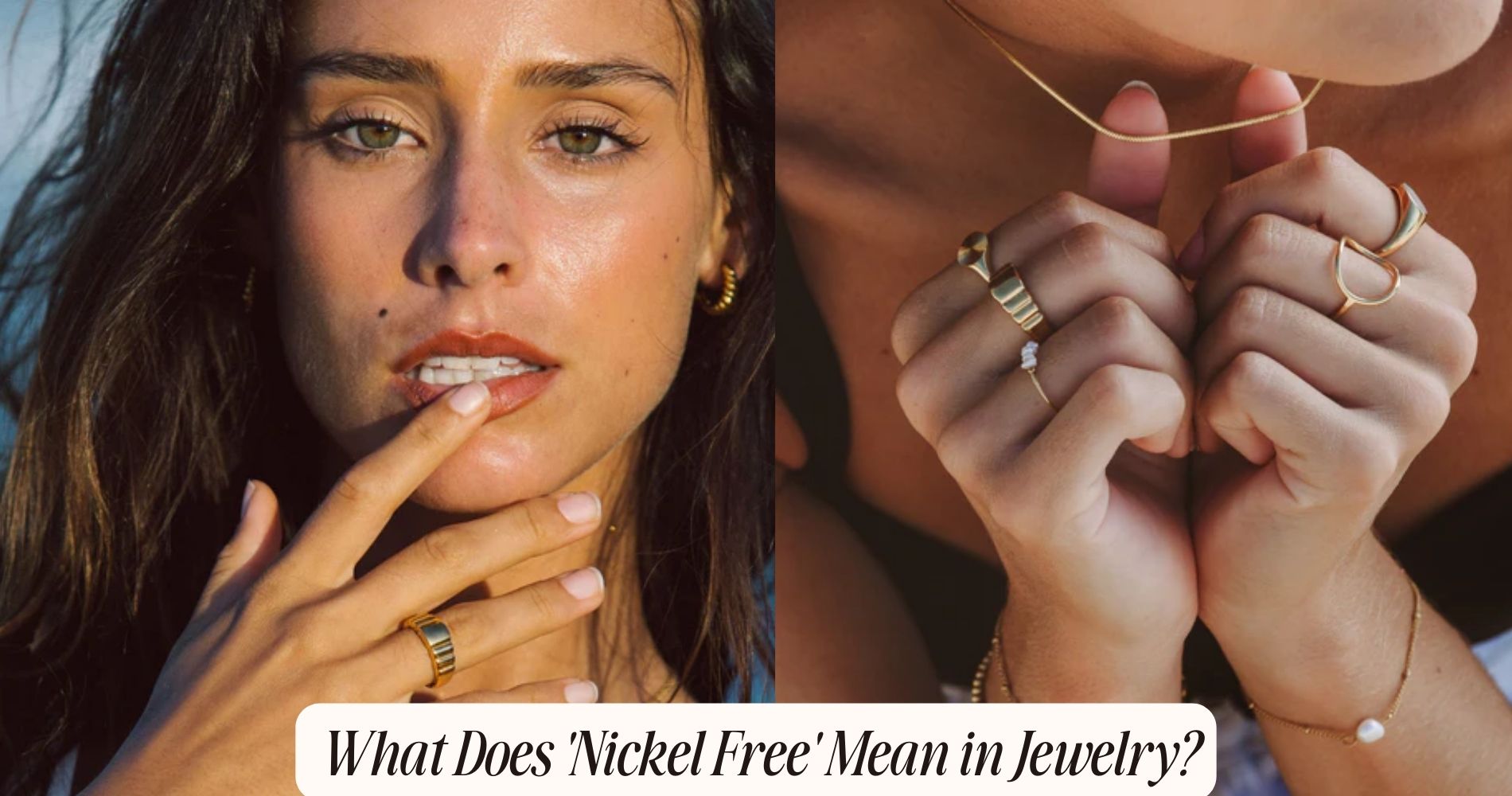
What Does 'Nickel Free' Mean in Jewelry?
Understanding Nickel in Jewelry
Nickel, commonly used in jewelry for its durability and shine, can cause allergic reactions in many people, making it essential to understand its presence in your accessories.
Historically, nickel's usage dates back to the 18th century, where it was utilized in various metal alloys to enhance strength and resistance to corrosion. Over time, nickel found its way into everyday jewelry, often mixed with other metals like copper and zinc to create affordable pieces.
When considering nickel sources in jewelry, you'll find it primarily in base metals and plated items. It's often present in stainless steel, which contains nickel for its rust-resistant properties, and in some gold and silver alloys to improve their hardness.
While many people wear nickel-containing jewelry without issues, others experience discomfort, including rashes or skin irritation.
Understanding the composition of your jewelry is vital, especially if you're prone to allergies. Always check labels or ask about the materials used in your accessories, so you can make informed choices and avoid potential reactions.
Knowledge is power when it comes to protecting your skin and enjoying your jewelry collection!
What Does 'Nickel Free' Mean?
When you see 'nickel free' on a jewelry label, it means the piece is made without any nickel content, reducing the risk of allergic reactions for sensitive wearers. Nickel is a common metal used in jewelry, often derived from nickel sources like alloys that include copper or brass. However, many people experience allergies to nickel, prompting the need for strict jewelry standards.
Jewelry that claims to be 'nickel free' must adhere to regulations set by industry bodies, guaranteeing it contains less than 0.05% nickel. This low threshold minimizes the likelihood of skin irritation and allergic reactions, making it a safer choice for individuals with sensitivities.
When shopping for jewelry, look for this label to guarantee you're selecting pieces that prioritize your comfort. Keep in mind that even if a piece is labeled 'nickel free,' it's always wise to check other materials involved, as some people may still have reactions to alternative metals.
Health Implications of Nickel
Nickel can trigger allergic reactions in many people, leading to rashes and discomfort when worn against the skin.
Over time, prolonged exposure might cause lasting skin issues, making it essential to take into account what your jewelry is made from.
Choosing nickel-free options not only enhances comfort but also protects your skin's health.
Allergic Reactions to Nickel
Many people experience allergic reactions to nickel, leading to discomfort and irritation when they come into contact with jewelry containing this metal. If you have a nickel allergy, you might notice symptoms like redness, itching, or swelling at the site of contact. This jewelry skin irritation can be not only bothersome but also persistent, affecting your overall enjoyment of wearing accessories.
Nickel is commonly used in various jewelry types, especially in costume jewelry, and can easily trigger allergic reactions. If you're sensitive to nickel, it's vital to pay attention to the materials used in your jewelry. When you wear items that contain nickel, you might experience a rash or blisters, which can take time to heal.
To avoid these nickel allergy symptoms, opt for nickel-free jewelry made from materials like sterling silver, titanium, or surgical stainless steel. These alternatives can help you enjoy fashionable accessories without the risk of irritation.
Long-term Skin Effects
Prolonged exposure to nickel can lead to chronic skin conditions, exacerbating irritation and discomfort for those with sensitivities. If you frequently wear jewelry containing nickel, you might experience a range of symptoms, from mild rashes to serious dermatitis. Over time, consistent contact can heighten your skin sensitivity, making it more reactive to other metals and irritants.
The long-term effects of nickel on your skin can manifest in various ways. You may notice persistent redness, itching, or even blistering, which can greatly impact your quality of life. It's essential to recognize that these symptoms may not appear immediately; they often develop gradually as your skin becomes increasingly reactive.

Choosing nickel-free jewelry is a proactive step to safeguard your skin health. By opting for pieces made from materials like sterling silver, titanium, or surgical stainless steel, you can enjoy stylish accessories without the risk of triggering adverse reactions.
Ultimately, being aware of the long-term implications of nickel exposure can help you make informed decisions, ensuring your skin remains comfortable and irritation-free. Protecting your skin today can lead to a healthier tomorrow.
Benefits of Nickel-Free Jewelry
Choosing nickel-free jewelry can considerably reduce the risk of allergic reactions and skin irritation, making it a safer and more comfortable option for sensitive individuals. This is especially vital if you've experienced discomfort from traditional jewelry materials in the past. By opting for nickel-free pieces, you're prioritizing your health while still enjoying stylish accessories.
Moreover, nickel-free jewelry often aligns with current fashion trends, ensuring you don't have to sacrifice style for comfort. Designers are increasingly creating stunning collections without harmful metals, allowing you to express your unique style without worry.
You'll also find that many nickel-free options are made from sustainable materials, which is a significant benefit for environmentally conscious consumers. Choosing sustainable options not only benefits your skin but also supports responsible manufacturing practices, making you feel good about your purchase.
Ultimately, by selecting nickel-free jewelry, you're investing in pieces that are both stylish and safe. You can confidently wear your favorite accessories, knowing they'll enhance your style without compromising your well-being. Embrace the benefits of nickel-free options, and elevate your jewelry collection today!
Common Alloys and Their Composition
When choosing nickel-free jewelry, it's crucial to understand the common alloys used and their compositions.
You'll discover that many popular alternatives not only eliminate nickel but also offer unique aesthetic qualities.
Let's explore these alloys and the health considerations that come with each option.
Common Jewelry Alloys
Many jewelry pieces are crafted from common alloys, each with a unique composition that affects both appearance and wearability.
For instance, sterling silver, made from 92.5% silver and 7.5% copper, offers a beautiful shine while maintaining reasonable jewelry durability. However, the copper can tarnish over time, requiring regular cleaning.
Another popular alloy is gold, often alloyed with copper, silver, or palladium. You'll find 14k and 18k gold, which indicate the purity level. Higher karats mean greater gold content, but they may compromise alloy strength, making them softer and more prone to scratches.
Stainless steel is another favorite due to its remarkable durability and resistance to tarnish and corrosion. Typically composed of iron, chromium, and nickel, it offers excellent strength, making it ideal for everyday wear.
Titanium, known for its lightweight nature and incredible strength, is also gaining popularity in jewelry. It's hypoallergenic and extremely resistant to scratches, making it a top choice for those seeking durability without sacrificing style.
Understanding these alloys helps you make informed decisions when selecting pieces that fit your lifestyle and preferences.
Nickel-Free Alternatives
Nickel-free alternatives are essential for those with sensitive skin or allergies, offering a variety of alloys that maintain both beauty and comfort.
If you're looking for silver alternatives, consider sterling silver, which is primarily made of 92.5% silver and 7.5% copper. This combination not only enhances durability but also keeps nickel at bay. Other options include Argentium silver, containing a higher silver content and often featuring germanium for added tarnish resistance, making it a fantastic choice for everyday wear.
When it comes to gold alternatives, you might explore gold-filled or vermeil jewelry. Gold-filled pieces consist of a solid layer of gold bonded to a base metal, providing a beautiful finish without the risk of nickel exposure. Vermeil, on the other hand, features a thicker layer of gold over sterling silver, ensuring both luxury and hypoallergenic properties.
If you're keen on fashioning a unique style, titanium and surgical stainless steel serve as excellent options too. Both materials are highly resistant to corrosion and tarnishing, making them perfect for anyone seeking lasting, nickel-free jewelry.
With these alternatives, you can enjoy stunning pieces without compromising comfort.
Health Considerations
Understanding the common alloys used in jewelry can help you make informed choices that prioritize both your style and skin health.
Many jewelry pieces contain alloys like sterling silver, gold, and stainless steel, which can sometimes include nickel. If you have nickel sensitivity, wearing jewelry with these alloys might lead to uncomfortable reactions.
Sterling silver typically consists of 92.5% silver and 7.5% other metals, often copper. While it's generally safe for most, some sterling silver may include nickel, which can pose a risk for those with sensitivities.
Gold jewelry often contains alloys that can include nickel as well, especially in lower-karat options. Stainless steel is a popular choice for its durability and resistance to tarnish, but be cautious—some stainless steel types can contain nickel.
To guarantee jewelry safety, look for items explicitly labeled as “nickel-free”. This assures that you're choosing pieces that won't trigger allergic reactions.
How to Identify Nickel-Free Jewelry
To find jewelry that's free of nickel, start by checking the materials listed on the product label or description. Look for terms like sterling silver, titanium, or 14k gold, which are typically nickel-free. Pay attention to identifying markings on the jewelry itself; reputable manufacturers often stamp their products with information about the metal content.
If you're unsure about a piece, consider using testing methods. One popular method involves applying a small amount of vinegar or lemon juice to the jewelry and waiting for a few minutes. If you notice a reaction, such as discoloration or corrosion, it may contain nickel. Another option is a nickel test kit, which you can purchase online or at craft stores. These kits contain a solution that changes color if nickel is present.
Always remember to buy from trusted retailers or brands that specifically advertise their products as nickel-free. Reading customer reviews can also provide insight into the authenticity of the claims. By being diligent and informed, you can enjoy your jewelry without worrying about potential allergic reactions to nickel.
Popular Nickel-Free Materials
Many jewelry lovers seek out materials that are naturally free of nickel to avoid allergic reactions, and several popular options stand out for their beauty and durability.
One top choice is titanium jewelry. Known for its strength and lightweight properties, titanium is an excellent option for those looking for stylish yet hypoallergenic pieces. Its sleek appearance makes it suitable for various designs, from rings to bracelets.
Another fantastic choice is stainless steel. This material isn't only resistant to tarnish and corrosion but also offers a modern aesthetic that appeals to many. Stainless steel jewelry typically features a polished finish, providing a sophisticated touch to any outfit. Plus, it's affordable, making it accessible for all budgets.
Both titanium and stainless steel are excellent alternatives for those wanting to avoid nickel without sacrificing style or quality. When you choose jewelry made from these materials, you can wear your pieces with confidence, knowing they won't irritate your skin.
Whether you prefer the contemporary look of stainless steel or the understated elegance of titanium, you're sure to find something that fits your taste and keeps your skin happy.
Care Tips for Sensitive Skin
Caring for sensitive skin requires a few thoughtful practices to guarantee your jewelry remains comfortable and irritation-free.
First, choose jewelry made from hypoallergenic materials like surgical stainless steel, titanium, or sterling silver, as these are less likely to cause reactions. When wearing your pieces, make sure they fit properly—too tight or loose jewelry can irritate your skin.
Regular jewelry maintenance is essential, too. Clean your jewelry frequently to remove dirt, oils, and sweat, which can exacerbate sensitivity. Use a gentle soap and warm water, then dry with a soft cloth. Avoid harsh chemicals that could damage your pieces or irritate your skin.
When you're not wearing your jewelry, store it in a cool, dry place. This will help prevent tarnishing and keep it in good condition. If you experience any irritation, take off the jewelry immediately and consult a dermatologist if necessary.
Lastly, consider applying a thin layer of clear nail polish to the inside of your jewelry, especially rings, to create a barrier between your skin and the metal. This small step can enhance your sensitive skin care routine considerably.
Misconceptions About Nickel-Free Labels
When you see a 'nickel-free' label, you might assume it's completely safe for sensitive skin, but that's not always the case.
Many people misunderstand what 'nickel-free' really means, and they often overlook the presence of other metals that can cause allergic reactions.
It's essential to dig deeper and understand what materials are actually used in your jewelry to avoid unexpected irritation.
Misunderstanding Nickel-Free Definitions
Understanding what 'nickel-free' truly means can be tricky, as not all labels reflect the same standards or intentions.
Many jewelry manufacturers use this term, but the lack of regulation creates significant nickel terminology confusion. Some pieces might contain only trace amounts of nickel, which could still trigger allergic reactions in sensitive individuals.
You might assume 'nickel-free' means zero nickel, but that's not always the case. In fact, many brands market their jewelry as nickel-free while still using alloys that contain small percentages of nickel. This inconsistency raises consumer awareness issues, making it difficult for you to determine what's genuinely safe to wear.
When shopping for jewelry, it's essential to do your homework. Look for brands that provide clear information about their materials and manufacturing processes. Don't hesitate to ask questions about any item labeled nickel-free.
Other Allergenic Metals Present
Many people mistakenly believe that if a piece of jewelry is labeled 'nickel-free,' it's entirely free of any other allergenic metals, but that's not always the case. While the absence of nickel can reduce the risk of allergic reactions for many, other metals can still trigger sensitivities.
For instance, if you have copper allergies, you might find yourself reacting to jewelry that contains copper alloys, even if it claims to be nickel-free. Similarly, silver sensitivity is another concern. Some silver jewelry contains alloys that include metals like copper or even zinc, which can cause irritation for those with sensitivities. Just because a piece is labeled as nickel-free doesn't guarantee it's safe for everyone.
When shopping for jewelry, it's crucial to take into account your specific allergies and sensitivities. Always read product descriptions thoroughly and look for materials you know are safe for you. Don't hesitate to ask sellers about the metal composition if you're unsure, as it can make a significant difference in your comfort and enjoyment of the piece.
Frequently Asked Questions
Is Nickel-Free Jewelry More Expensive Than Regular Jewelry?
Nickel-free jewelry often costs more due to higher-quality materials and increased market demand. When you weigh the cost comparison, consider potential allergies and the long-term benefits of investing in hypoallergenic options for your comfort.
Can Nickel-Free Jewelry Still Cause Allergic Reactions?
Yes, nickel-free jewelry can still cause allergic reactions, especially if you're sensitive to other materials. Always check the specific jewelry materials used, as some may contain other allergens that trigger your nickel allergies.
Are There Specific Brands Known for Nickel-Free Options?
When looking for nickel-free jewelry, consider popular brands like Pandora, Swarovski, and Tiffany. These brands align with consumer preferences for hypoallergenic options, ensuring you can enjoy beautiful pieces without worrying about allergic reactions.
How Can I Test Jewelry for Nickel Content at Home?
You can perform at home tests by using a nickel test kit or applying a solution that causes jewelry reactions. If it changes color, your piece likely contains nickel, so proceed with caution.
Does Nickel-Free Jewelry Come in Different Styles and Designs?
Nickel-free jewelry showcases incredible design versatility. You'll find various styles crafted from nickel-free materials like stainless steel, titanium, or sterling silver, ensuring you can express your unique aesthetic without worrying about allergic reactions.
Conclusion
To sum up, choosing nickel-free jewelry not only safeguards your skin from potential allergic reactions but also offers a range of stylish options.
By understanding what 'nickel free' means and being aware of common alloys, you can make informed decisions that enhance your comfort and confidence.
Remember to check labels and explore materials like stainless steel, titanium, or sterling silver.
With the right knowledge, you can enjoy beautiful jewelry without compromising your well-being.
Happy shopping!


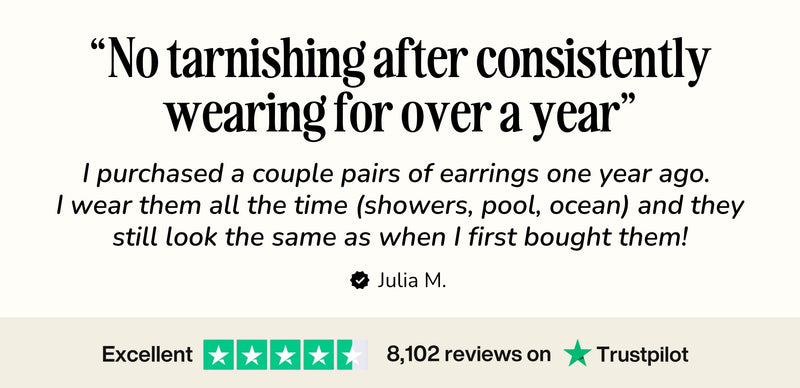






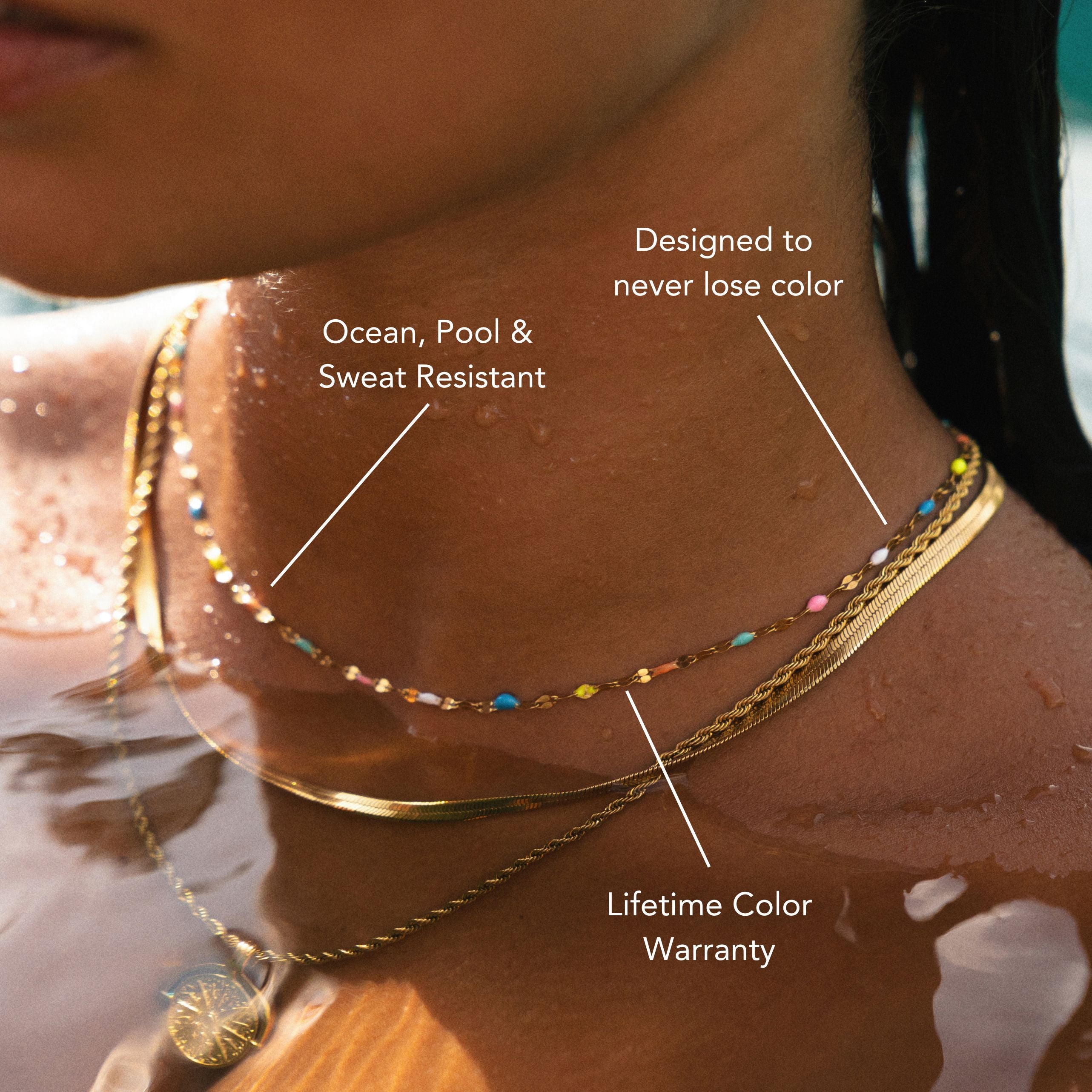




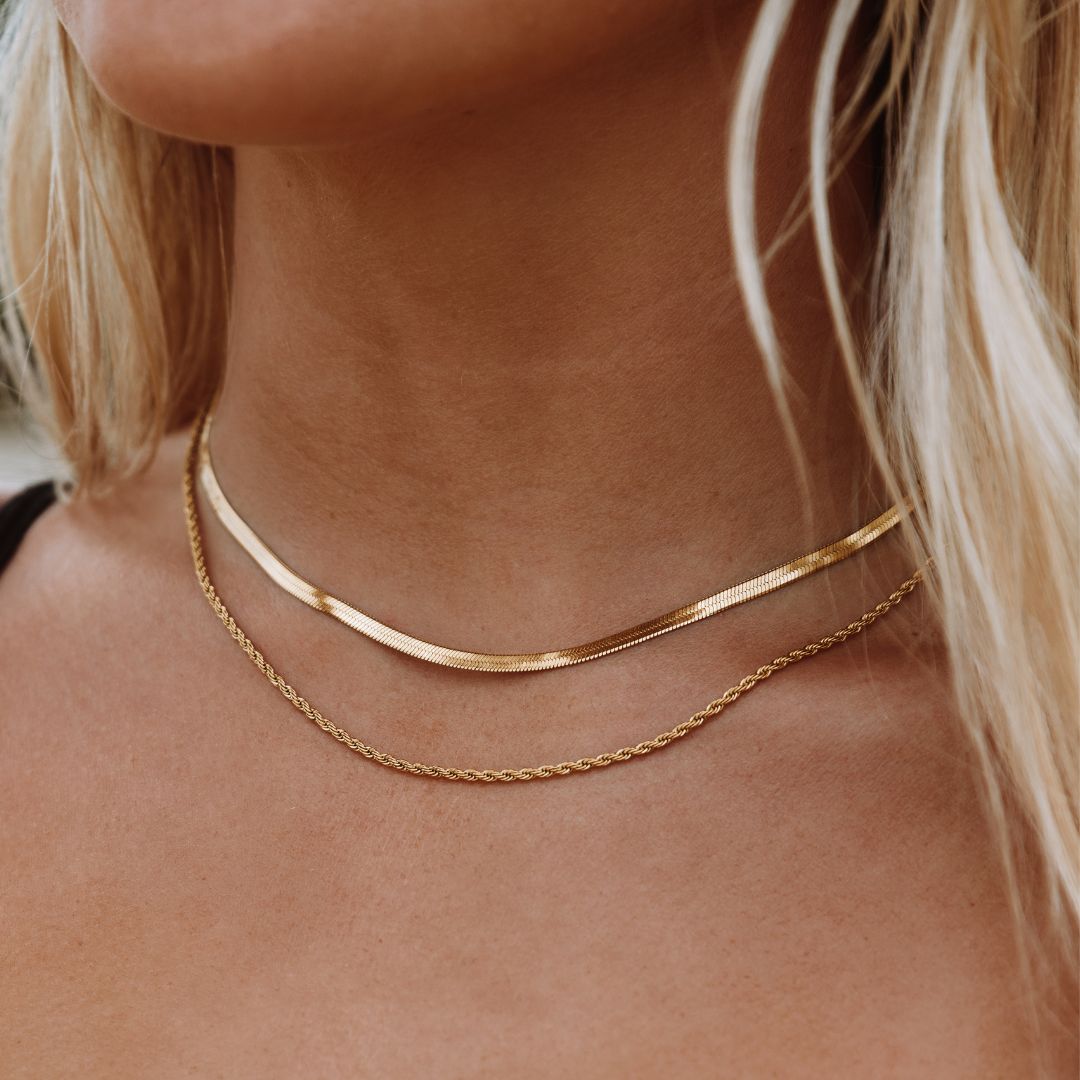

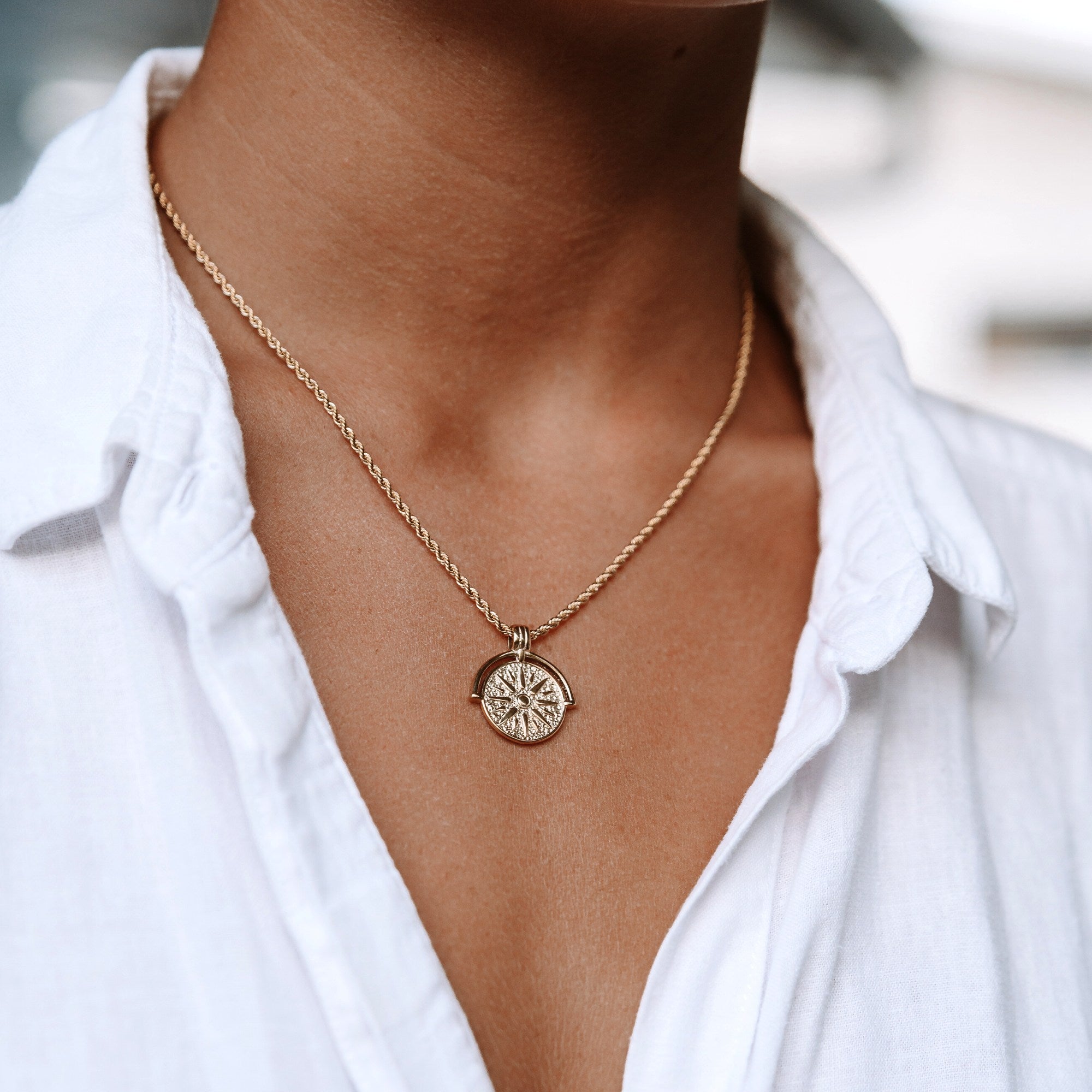

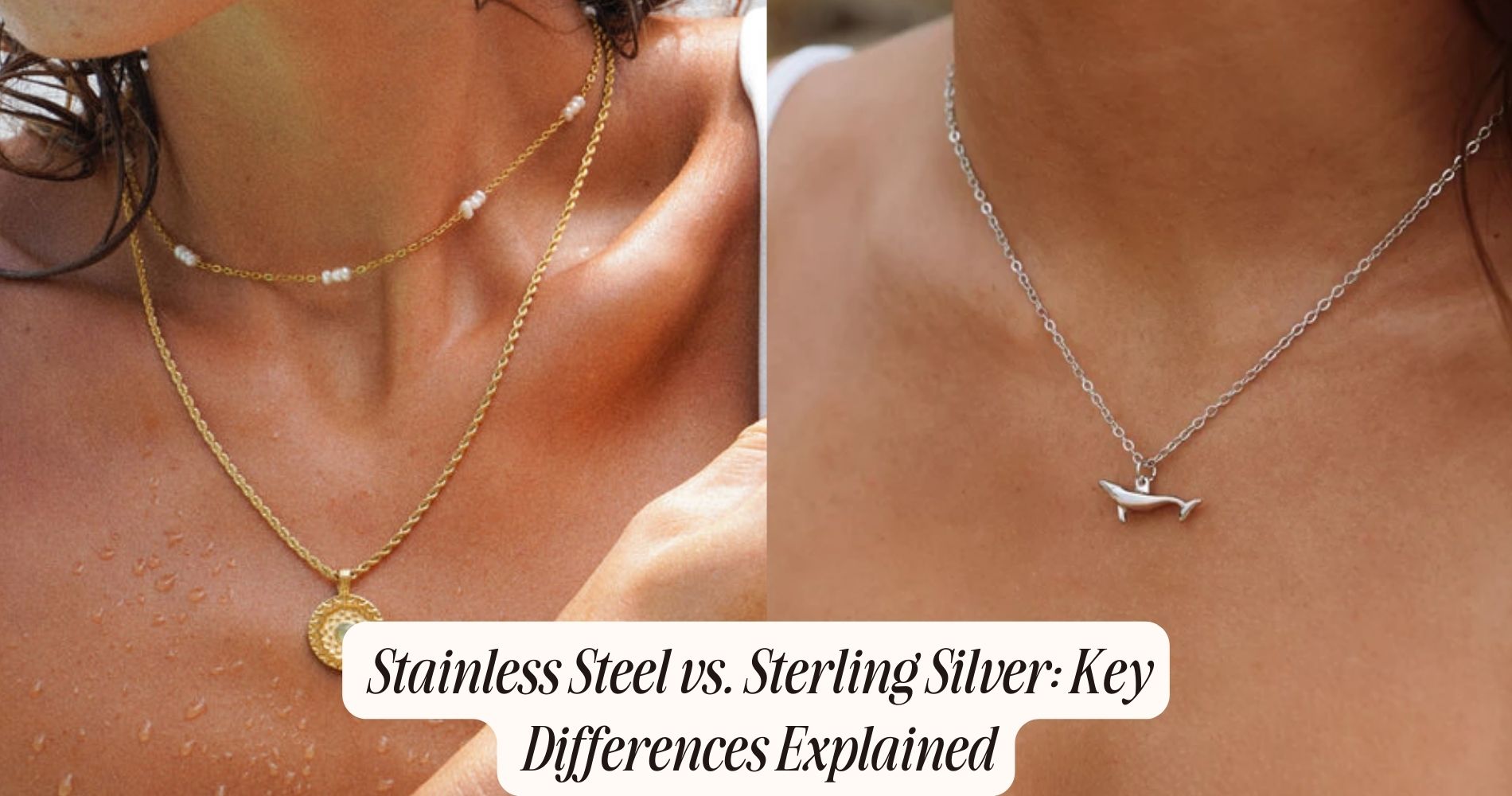
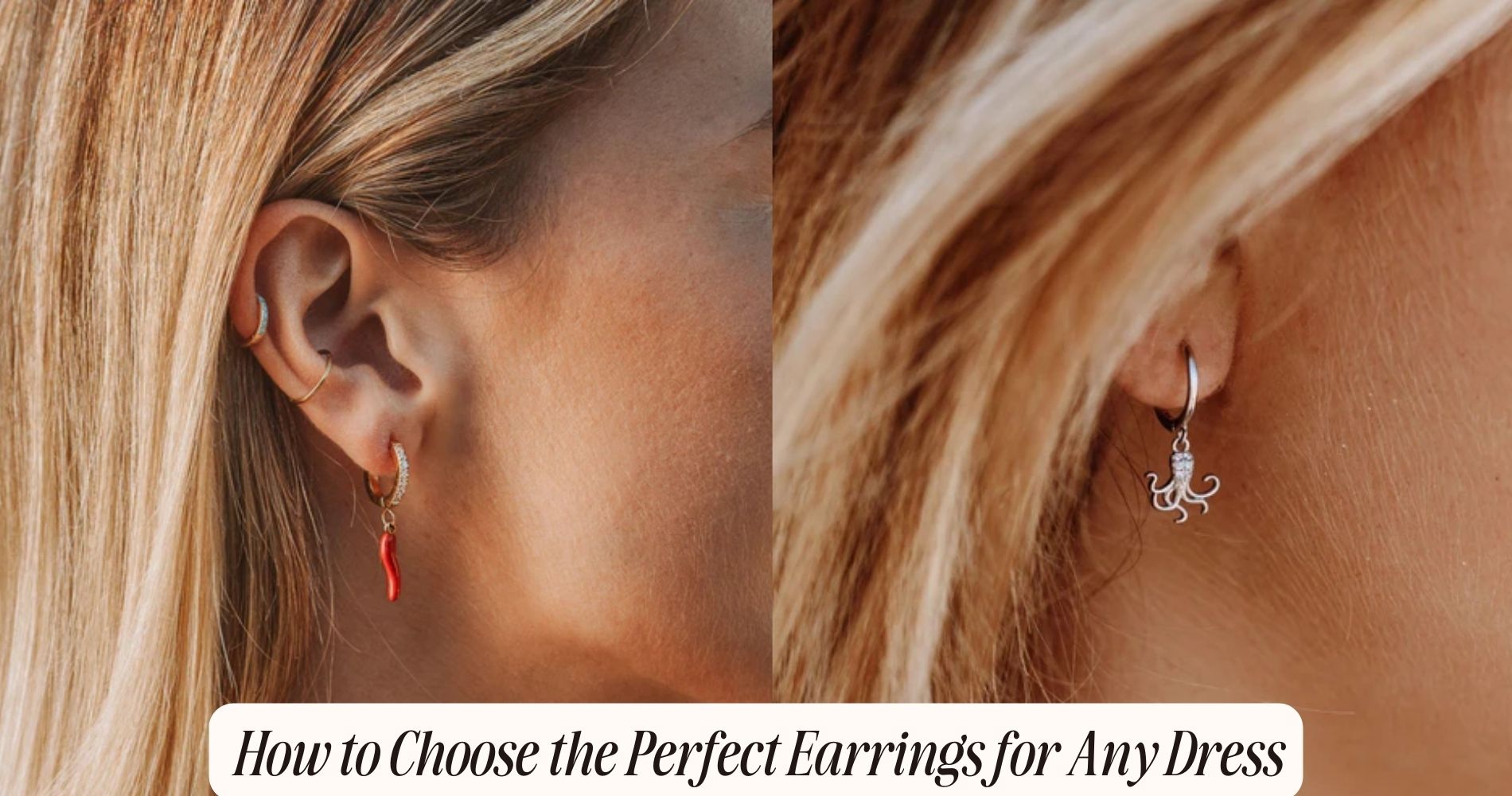




Leave a comment
This site is protected by hCaptcha and the hCaptcha Privacy Policy and Terms of Service apply.